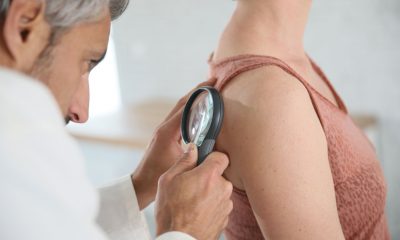Doctors are saying that instead of doing potential dementia sufferers a lot of good with an early check-up, it actually might do them more harm.
The first things to be considered are the stigma and the accompanying anxiety that dementia will give a potential sufferer, because of the lack of knowledge by the common people about the illness. These conditions far outweigh whatever benefits early dementia checking gives, according to Dr. Chris Fox from the medical school of the University of East Anglia, a public research university in England.
As there is still no breakthrough cure for dementia, which is linked to Alzheimer’s disease, the fear in someone getting it becomes greater.
Although routine screening for dementia is not yet done in the United Kingdom, there are some groups that have called for it to be done in the country, using brain imaging referral and cognitive testing. And Dr. Fox, who is speaking at the TEDMEDLive conference on healthcare in Bristol this week, added that there is a high risk of misdiagnosing the illness at an early stage. He added that people who are will undergo early dementia testing will be far more worse than those people who are diagnosed to have dementia already appearing.
Routine screening
In ten years, it is projected that about 60 million people will have dementia. While routine dementia screenings may provide early diagnosis to people long before symptoms of the illness shows in them, the effect on the person is what is worrying. This is because a dementia diagnosis is very likely to turn a person’s life upside down long before the onset of dementia actually happens. For one thing, some form of memory loss is usually a part of the ageing process. But it does not mean that the memory loss is likely to lead to dementia.
At the same time, the current methodologies for the testing are not that robust and there is still a high risk of misdiagnosis, which will only compound the problem rather than provide an early solution. It is believed that it is unfair to individuals to immediately give them reason to fear and be concerned about an illness that might not happen, for which treatments are not yet available; where the chances of the illness actually progressing is still unknown and finally, that the symptoms that might surface from routine testing might not even continue for the lifetime of the patient. That is what Dr. Fox wants to make clear and acknowledged during the conference.
Cause for concern
The concern about dementia is very real. It is undeniably a major concern about the individuals who are part of the ageing society. But still, there are still too many things are needed to be done to fully understand the illness and how it could be managed. And routine screening, for some groups of doctors is not the answer. Rather they are pushing for timely and fast diagnosis when the symptoms are already apparent. The Department of Health in Britain is more for pushing just that. They are encouraging that doctors should speak to patients who are suffering from memory loss, which could be caused by the disease and then investigate the illness further, which is not the same as routine screening.















Facebook
Twitter
Pinterest
Google+
LinkedIn
Email